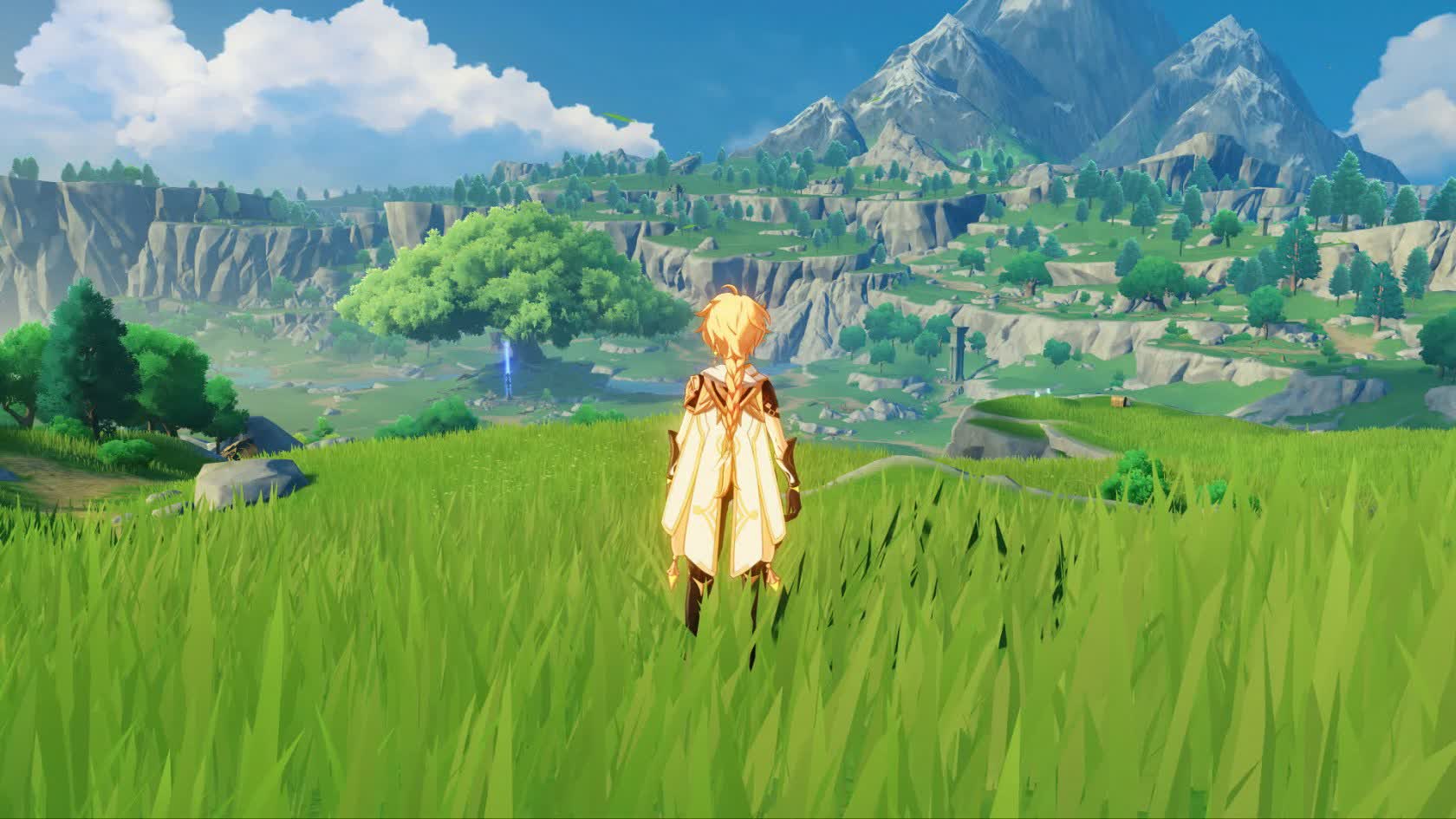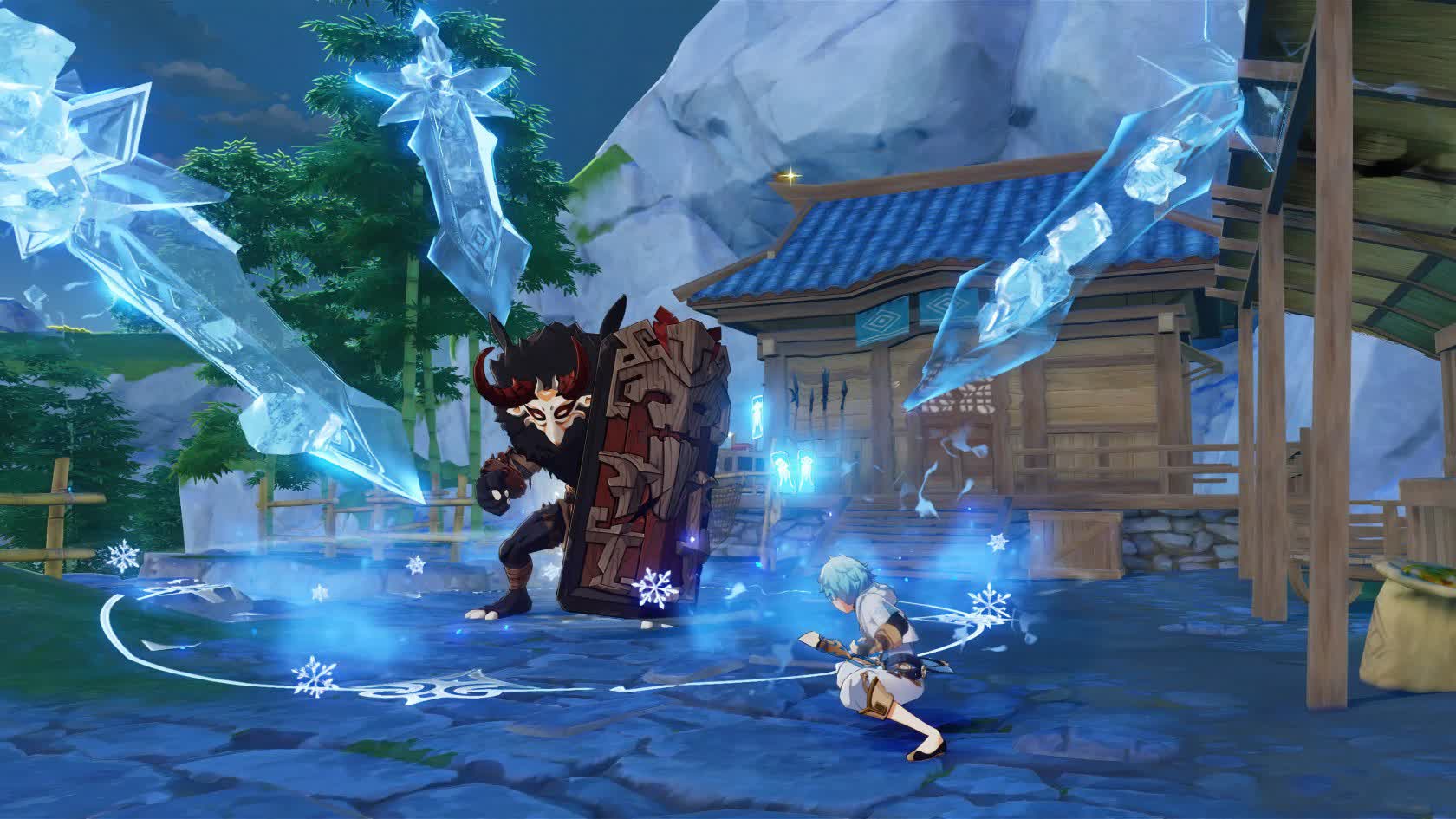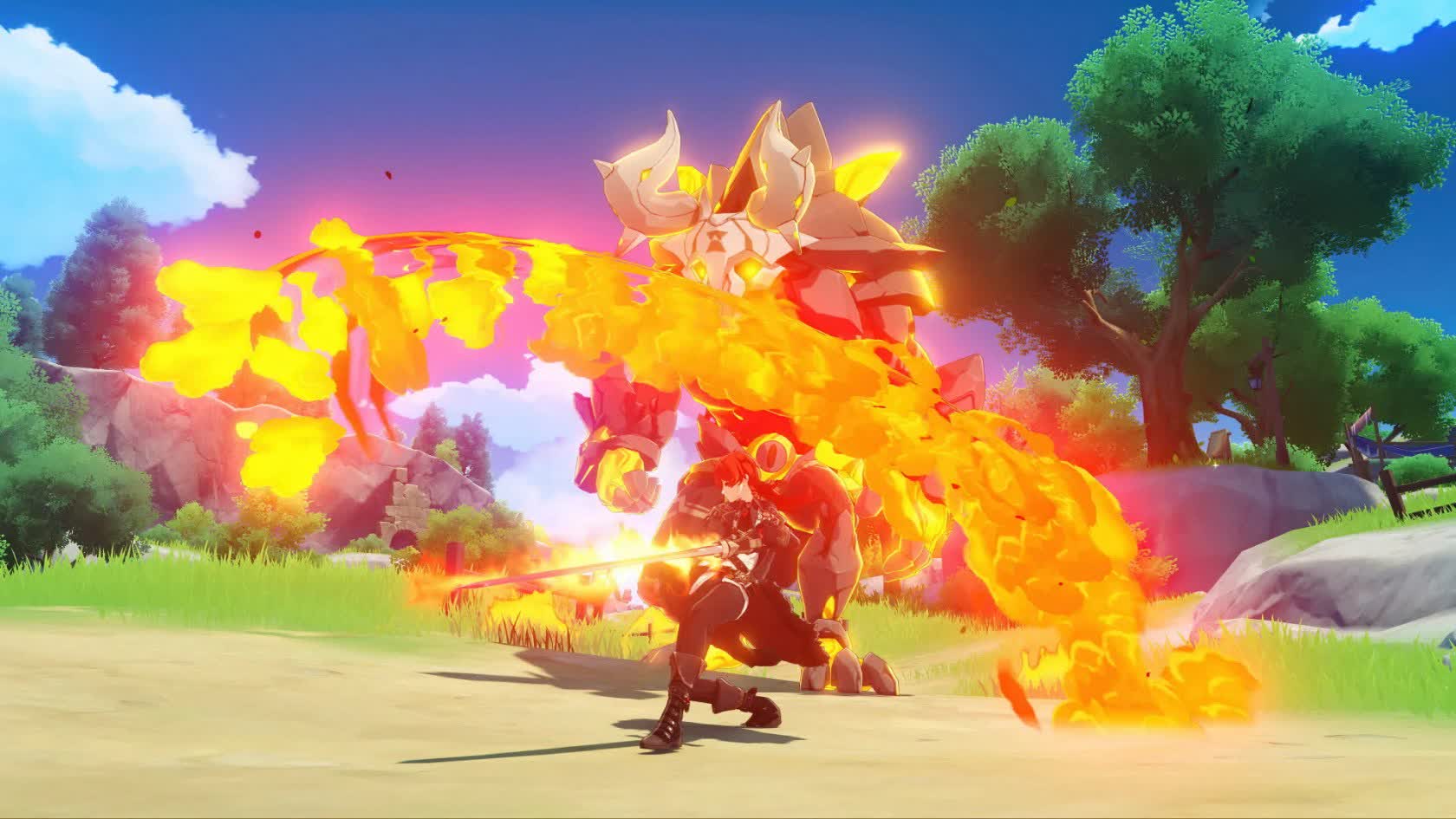In context: Nintendo's The Legend of Zelda: Breath of the Wild is arguably a gold standard game in the open-world genre: gorgeous graphics, unprecedented world interactivity, and free-form gameplay have earned it numerous awards. Recently, Chinese studio miHoYo decided to try their hand at a similar experience in the form of "Genshin Impact," an incredibly popular BOTW-like single player action-RPG that launched on PC, the PS4, and mobile devices a few weeks ago.
A random, thrown-together BOTW clone wouldn't be worthy of much consideration under ordinary circumstances. However, Genshin's astounding $245 million in first-month gross profits – on mobile devices alone – proves there's far more to it than that. Indeed, the freemium hit has had one of the biggest launch months in mobile gaming history, surpassed only by giants like Pokemon Go.
So, what is the secret sauce that has allowed the game to flourish? For starters, unlike BOTW, Genshin Impact is entirely free, and it's available on just about every platform you can think of (barring Xbox One – for now).
That alone would be enough to entice plenty of people to give it a shot, especially if they don't have access to a Nintendo Switch (and, thus, Breath of the Wild).

However, Genshin is also pulling in new fans through its gameplay. Like BOTW, you'll find yourself climbing, gliding, and sprinting through the massive cell-shaded world, but you do with a party of four heroes. You can only control one of them at a time, but you can instantly swap between them with the touch of a button.
This is important because every character has their own (mostly) unique set of abilities, and these abilities can interact with each other. For example, you might rush into the fray with a water magic-wielding fighter to douse your enemies and then quickly switch to a lightning witch to combo into some shock attacks.
Or, you might set the ground on fire and then switch to a wind-based character to launch a tornado through the flames. The tornado will then catch fire and burn any enemies it manages to suck in.

There's a surprising amount of depth to be found within these interactions, and one of the most entertaining parts of the game is unlocking different heroes and attempting to put together a perfectly-optimized party.
Also similar to BOTW, Genshin rewards exploration. You'll stumble upon random encounters, temples, open-world puzzles, and various collectibles as you run around, ensuring that you never feel like you're wasting your time by avoiding the main story.
There is one downside to all this greatness, though: since Genshin is a "gacha" game, your progression is primarily driven through purchasing or earning enough in-game currency to snag "Wishes," which are essentially loot boxes. These Wishes can contain new characters, new equipment, and other miscellaneous items.

Since this system is so RNG-dependent, it's quite possible to open up dozens of Wishes without getting that specific character you want (or, indeed, any character at all).
To be clear, the game won't hang you out to dry entirely if your luck stinks. Just by playing the story, you'll unlock more than enough characters to fill out your party, and by level 30, you'll likely have at least 9 or 10 heroes to toy around with.
Regardless, it seems the system isn't bothering players too much if the game's revenue figures mentioned above are anything to go by. Whether the success is due to Genshin's mobile availability or simply its compelling gameplay and world, it is doing remarkably well for itself.
And, if we had to guess, we'd say the game's popularity will probably only grow from here – so long as miHoYo continues to support it with regular updates, that is. If you want to give Genshin Impact a shot, download it from TechSpot's software section.
